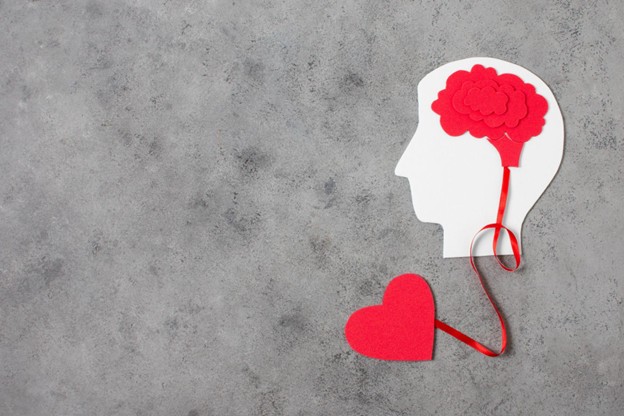
The Overlooked Connection
Cardiac health and mental well-being are deeply intertwined, yet traditional care models continue to treat them separately. John R. Callen underscores that recovery from cardiovascular events is most effective when programs address both the body and the mind.
Research from the American Heart Association confirms this: patients with depression are nearly twice as likely to experience a second cardiac event. Left untreated, stress, anxiety, or low mood can derail recovery, weaken adherence to treatment plans, and raise the risk of future complications. Treating heart and mind together is not just a best practice; it is a clinical necessity.
When the Heart Affects the Mind, and Vice Versa
The relationship between mental and cardiac health is bidirectional. One cannot falter without influencing the other.
Mental health issues that arise from poor cardiac health:
- Patients who survive a heart attack often describe living with a “shadow” of fear, a constant worry that another event might strike. This can manifest as anxiety, hypervigilance, or even panic attacks.
- Heart failure patients commonly struggle with depression due to limitations in mobility, dependence on caregivers, or a perceived loss of independence.
- Studies have shown that as many as 1 in 5 cardiac patients develop post-traumatic stress disorder (PTSD) following major cardiac events like sudden cardiac arrest or emergency surgery.
- Even seemingly small rhythm disturbances, such as atrial fibrillation, can cause chronic stress and sleep disruption, further eroding emotional stability.
Cardiac issues driven by poor mental health:
- Chronic stress at work or home can keep the body in “fight or flight” mode, flooding the system with cortisol and adrenaline. Over time, this increases blood pressure, stiffens arteries, and accelerates heart disease.
- Depression is not only emotional; it has biological consequences. Depressed patients are less likely to adhere to medication or exercise regimens, which doubles their risk of recurrent cardiac events.
- Social isolation is another silent driver: individuals lacking strong support networks are more prone to hypertension and inflammatory heart conditions. For example, widowed seniors have been found to have higher rates of cardiac mortality than their socially engaged peers.
As John R. Callen notes, this cycle creates a dangerous feedback loop, where a weak heart worsens mental health, and fragile mental health, in turn, weakens the heart. Breaking this loop requires the deliberate integration of psychological care into cardiac recovery, ensuring patients rebuild both the resilience of the heart and the strength of the mind.
What Mental Health Support Really Means
To integrate mental health into cardiac recovery, it is critical to first understand what “support” entails. Mental health support is not just therapy sessions; it is a spectrum of interventions, including:
- Psychological care: counseling, psychotherapy, and cognitive-behavioral strategies tailored to cardiac patients.
- Social support: caregiver training, peer support groups, and community connection to prevent isolation.
- Behavioral guidance: stress management, mindfulness, relaxation techniques, and habit coaching.
- Medical support: screening for depression or anxiety and coordinating treatment with psychiatric professionals when necessary.
By recognizing this full spectrum, cardiac programs can shift from treating isolated symptoms to nurturing overall resilience.
The Role of Cardiac Recovery Programs
Cardiac recovery programs traditionally emphasize the physical aspects of healing, exercise regimens, nutritional planning, medication adherence, and regular monitoring. These steps are undeniably effective, but they often stop short of addressing the mental and emotional toll that comes with cardiac illness. As John R. Callen highlights, this gap is where integration must begin.
A truly comprehensive program does not separate treadmill training from stress reduction or dietary counseling from emotional resilience. Instead, it recognizes that recovery is multidimensional. For example:
- Exercise regimens + stress management:
While walking or treadmill training improves heart function, pairing it with mindfulness sessions or breathing techniques can reduce anxiety that often accompanies cardiac events. - Patients not only strengthen their hearts but also calm their minds, lowering overall relapse risks.
- Nutritional counseling + emotional well-being:
Healthy eating is easier said than done when depression or stress-driven eating habits interfere. - Nutrition sessions that include behavioral coaching or support groups help patients stay consistent with dietary goals.
- Medication adherence + psychological support:
Forgetfulness, denial, or hopelessness often sabotages medication routines. - Integrating counseling or caregiver check-ins helps patients understand the “why” behind their prescriptions, boosting compliance.
- Monitoring physical progress + tracking mental health:
Regular checkups measure blood pressure and heart rhythm, but adding screenings for depression, anxiety, or cognitive decline ensures that emotional risks are not overlooked.
As Callen explains, separating the physical from the mental leaves recovery incomplete. When both are integrated, programs move beyond survival; they foster resilience, confidence, and a renewed sense of life.
How to Integrate Mental Health into Cardiac Recovery

For integration to move from concept to reality, care teams and hospitals must commit to structural changes. Some key pathways include:
- Screening at intake: Evaluating depression, anxiety, and social isolation alongside blood pressure and cholesterol.
- Collaborative care teams: Psychologists, cardiologists, nutritionists, and therapists working in sync around one patient.
- Personalized care plans: Adjusting exercise intensity for patients with anxiety or building coping skills for those prone to stress.
- Family and caregiver inclusion: Teaching caregivers to spot mental distress and provide consistent support at home.
- Ongoing monitoring: Using both digital tracking and personal check-ins to monitor not just heart performance but also mental resilience.
These steps, Callen stresses, ensure that recovery is not only physical repair but also psychological renewal.
Misunderstandings That Hold Progress Back
Despite clear evidence, integration faces resistance rooted in outdated assumptions:
- The idea that mental health is secondary. In reality, untreated depression can increase mortality risk as much as some cardiac risk factors.
- The notion that emotional well-being is separate from medical care. In truth, both exist on a continuum that determines recovery.
- And the worst of all is the idea that one program can fit all. Cardiac and mental health must both be individualized; otherwise, critical patient differences are overlooked.
Breaking through these misconceptions requires a shift in perspective, from viewing integration as optional to seeing it as indispensable.
The Perspective Shift Ahead
The future of cardiac care lies in bridging medical precision with emotional understanding. Genetics, AI, and advanced data systems will soon allow unprecedented personalization in cardiology. But as John R. Callen emphasizes, no technology can replace the impact of compassion, counseling, and human connection in recovery.
The true transformation comes when clinicians ask not only what condition this patient is recovering from but also what life he is returning to. That dual lens, cardiac and mental, medical and emotional, is where recovery transcends survival and enters the realm of renewal.
Conclusion
Integrating mental health support into cardiac recovery programs is not a luxury, nor an afterthought; it is the cornerstone of sustainable, holistic healing. Ignoring the psychological dimension leaves patients vulnerable to relapse, disengagement, and prolonged suffering. John R. Callen stresses the most trusted recovery model, which is both medically effective and human-centered, by directly addressing the complex relationship between the heart and the mind.
The results are clear:
- Better adherence — patients who feel emotionally supported are far more likely to follow through with exercise, nutrition, and medication plans.
- Reduced readmissions — by tackling stress, depression, and anxiety early, hospitals prevent complications that often bring patients back into acute care.
- Improved confidence and independence—emotional resilience allows patients to regain trust in their bodies, reintegrate into daily routines, and sustain healthier lifestyles.
For John R. Callen, this represents the next chapter of cardiac medicine, an era where mental health is seamlessly woven into rehabilitation, where data informs care but empathy drives it, and where patients are empowered not just to live longer but to live better.

